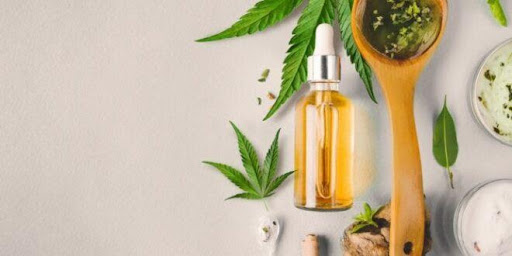 Cannabis has been used for medicinal purposes for a long time. The plant’s composition has over 80 compounds known as cannabinoids. The most abundant and well-known compound of these is THC which often induces psychoactive effects while its counterpart CBD does not have such properties.
Cannabis has been used for medicinal purposes for a long time. The plant’s composition has over 80 compounds known as cannabinoids. The most abundant and well-known compound of these is THC which often induces psychoactive effects while its counterpart CBD does not have such properties.
Our collective understanding of the use of CBD for mental health is limited. Many studies suggest that there might be benefits, but a recent review found scant support so more research is needed to substantiate these claims.
Uses
There are several disorders that white label CBD is purported to help, with more research needed to determine the potential effects and benefits.
To know the benefits of CBD (Cannabidiol), read more here.
Some current studies suggest that it may help treat depression, anxiety, epilepsy, or sleep problems, among others.
Epilepsy
Research has shown that CBD can positively affect seizure-inducing conditions such as Dravet syndrome and Lennox Gastaut. However, it is not a practical option for those who are already suffering from seizures. Viral clips of people using this treatment at home made their way on the Internet last year. This sparked interest among researchers to look into its effectiveness.
Anxiety
A study published by Loflin and Whitton suggests that CBD may help alleviate multiple types of anxiety. Possible anxiety conditions include generalized panic disorder (GPD), OCD with compulsions that interfere with daily functioning (OCD-C), social phobia involving intense fear, and PTSD related to traumatic events. However, further research must be completed before its therapeutic benefits can be determined conclusively.
Depression
Animal studies show that low serotonin levels may play an important role in depression development. CBD might work by acting on these receptors, which could produce some of its benefits, like these products available from westcoast cannabis. According to a study, when given two doses of cannabidiol, subjects had no impact on mood. However, it did help those participants whose brain chemistry is different because they would respond better if their serotonin levels were lower than normal. This showed how it’s not just about having enough serotonergic activity going around your skull.
Sleep Difficulties
Troubled sleep may be a side effect of many conditions, or it may signal another underlying issue. A third of U.S adults do not get enough restful sleep, leading to health problems such as obesity and depression in the long term. One study found that 65% of people with anxiety who followed CBD for six weeks saw better quality scores on their sleeping patterns.
Post-Traumatic Stress Disorder (PTSD)
PTSD is a severe condition characterized by symptoms such as re-experiencing traumatic events, intrusive thoughts, and situations. This may trigger memories about the trauma they experienced previously in their lives (source). It can be challenging to cope with this condition alone, so having additional support from friends/family can help tremendously improve. Some research suggests CBD has helped reduce some of these debilitating symptoms associated with this disorder, including flashbacks and anxiety while improving mood stability overall – an oral dose helped reduce.
Types:
CBD is a substance extracted from both hemp and marijuana plants. Hemp CBD has little to no THC, the primary psychoactive constituent in cannabis plant matter, while weed-derived CBD may have more of this compound, producing euphoric effects.
CBD comes in three main types.
1) CBD isolate – contains only CBD with no other compounds from the cannabis plant.
2) Full spectrum – this includes all of the compounds found in marijuana plants, including those that may be psychoactive.
3) Broad Spectrum – does not contain high amounts of THC but other cannabinoids such as CBN.
Common ways of using CBD include:
- Oral – oils (made by infusing cannabidiol with a carrier oil), oil tinctures (produced by combining CBD with alcohol or water), sprays, and CBD dietary supplements.
- Topical – these cover salves or lotions which apply to skin for relief.
- Edibles – candies, gummies, beverages all contain some form of cannabidiol.
- Inhalation – specially formulated vape oils containing this cannabinoid.
Possible Side Effects
While CBD found in cannabis has shown potential benefits for numerous illnesses, it may have specific side effects. Some reported side effects include:
- Anxiety
- Mood changes
- Appetite changes
- Nausea
- Dizziness
- Drowsiness
With all the different products, formulations, and dosages on the market, it is hard to understand the side effects. There are no regulations or manufacturing guidelines for these medications, which means many people do not know if they will experience a particular symptom-based on their dosage.
Conclusion
If you are experiencing mental health condition symptoms, it is essential to get medical attention. CBD can be used as an alternative treatment for anxiety and depression, but self-medicating with supplements may cause delays in getting professional help that will worsen your situation.
CBD is an exciting new form of treatment that many people with anxiety or depression are considering. If you’re still interested in trying CBD, work closely with your doctor to monitor your symptoms and usage, as they will be able to recommend a product appropriate for you based on what’s going on inside. Always make sure you do plenty of research about the side effects before starting any treatments, especially when it comes time to stop taking them.
Related Posts: